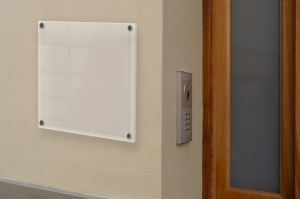When importing goods into Australia, maneuvering through the customs clearance process can be a challenging task. Understanding the intricacies of customs procedures is essential for a successful importation journey.
From documentation requirements to tariff implications, each step plays a significant role in ensuring a smooth clearance process. By delving into the specifics of customs clearance for Australian imports, you will gain valuable insights that can streamline your import operations and help you avoid potential pitfalls along the way.
Partnering with WorldWide Customs and Forwarding Agents (WWCF) can also provide you with expert guidance and support throughout the customs clearance process.
Key Takeaways
-
Accurate HS code classification is essential for smooth customs clearance.
-
Detailed documentation like Commercial Invoice and Certificate of Origin is crucial.
-
Understanding import duties, taxes, and additional charges is vital.
-
Awareness of import restrictions, permits, and licenses is necessary.
-
Partnering with experts like WWCF simplifies the clearance process.
Documentation and Classification Essentials
Understanding the key documentation and accurate classification using HS Codes is essential for successful customs clearance of Australian imports. Classification accuracy is important, and as an importer, it's your responsibility to guarantee the correct classification of your goods.
Seeking assistance from reliable resources such as the ABF website or a sourcing agency can help in ensuring code accuracy. By providing a detailed Commercial Invoice, Packing List, Bill of Lading, Certificate of Origin, and Import Permit, you're laying the groundwork for a smooth customs clearance process.
Paying attention to these details and taking necessary steps to accurately classify your goods will help in avoiding delays and issues during customs clearance.
Duties, Taxes, and Charges Overview
For Australian imports, it's vital to accurately determine and account for import duties, taxes, and additional charges to ensure compliance with regulations and proper cost estimation.
Understanding the tariff implications and tax calculation is essential for a smooth customs clearance process. Import duties are influenced by the classification of goods and their country of origin, with a standard 5% ad valorem duty applied to goods from China. Additionally, a Goods and Services Tax (GST) at 10% is levied on imports.
Be mindful of potential additional charges such as anti-dumping duties. Ensuring you have a thorough understanding of these charges will help you accurately calculate costs and prevent any unforeseen financial implications during the import process.
Restricted and Prohibited Imports
To ensure compliance with Australian customs regulations, it's essential to be aware of the restrictions and prohibitions that apply to imports into the country.
Certain goods may require permits or licenses for importation, and failure to adhere to these requirements can result in delays, extra costs, or even confiscation of the goods.
It's vital to have a thorough understanding of the specific restrictions and prohibitions that apply to the items you're importing. By guaranteeing compliance and obtaining the necessary permits or licenses, you can navigate the customs clearance process smoothly and avoid any potential issues.
Stay informed and proactive to prevent any complications during the importation of restricted or prohibited goods.
Simplifying Customs Clearance Procedures
Streamlining the customs clearance process can greatly benefit importers by reducing delays and ensuring efficient handling of import procedures. To simplify customs clearance procedures, focus on process optimization and efficiency strategies.
Diligent preparation of documentation is key, ensuring all required paperwork is accurate and complete. Correctly classifying your products with the appropriate HS Codes will lead to a smoother process. Understanding duties, taxes, and restrictions beforehand can help you navigate the clearance process more effectively.
Partnering with experts like WWCF can provide valuable support and guidance. By embracing these efficiency strategies and optimizing your customs clearance process, you can expedite the import process and minimize potential delays.
Customs Clearance Process and Services
Optimizing the customs clearance process involves meticulous preparation of documentation and accurate classification of products to facilitate a smooth and efficient import procedure. Understanding import regulations and compliance requirements is vital for a successful clearance process.
You need to obtain an importer number, determine tariff classifications, calculate duties and taxes, and submit all required documentation for customs clearance. Compliance with import regulations, duty and tax considerations is crucial to avoid delays, inspections, or non-compliance issues.
Utilizing customs brokerage services can provide expertise in navigating through the complexities of the clearance process. By staying informed and following the necessary steps, you can streamline your customs clearance experience and ensure a hassle-free importation process.
Frequently Asked Questions
Can I Clear Customs Without an Import Permit?
Yes, you cannot clear customs without an import permit. Failure to comply with permit requirements can lead to consequences like delays, fines, or even seizure of goods. Make sure you have all necessary permits before importing to avoid restrictions.
What Happens if My Goods Are Classified Incorrectly?
If your goods are classified incorrectly, penalties can apply. Re-categorization might be necessary, affecting duties and taxes. To avoid issues, guarantee accurate classification from the start. Seek assistance to prevent costly mistakes.
Are There Any Exceptions to the 5% Duty on Chinese Goods?
Yes, there are exceptions to the 5% duty on Chinese goods. Tariff exemptions can apply based on trade agreements between countries. Understanding these exemptions is essential for accurate cost estimation and compliance with customs regulations.
Can I Import Restricted Items With the Right Permits?
Yes, you can import restricted items with the right permits. To guarantee compliance and avoid issues, research permit requirements for specific goods. Exceptions may apply based on the type of item and the permits obtained.
How Can I Expedite Customs Clearance for Urgent Shipments?
To expedite customs clearance for urgent shipments, guarantee accurate documentation and classification. Request priority handling for fast track clearance. Partner with a reliable sourcing agency for expert support in managing duties, taxes, and regulations effectively.
Conclusion
To sum up, mastering the intricacies of customs clearance for Australian imports is essential for successful trade operations. By ensuring accurate documentation, proper classification, and compliance with duties and taxes, importers can streamline the clearance process and avoid costly delays.
Understanding import restrictions, obtaining necessary permits, and partnering with experts like WorldWide Customs and Forwarding Agents (WWCF) can further enhance efficiency and minimize risks.
Stay informed, stay compliant, and navigate the customs landscape with confidence.






